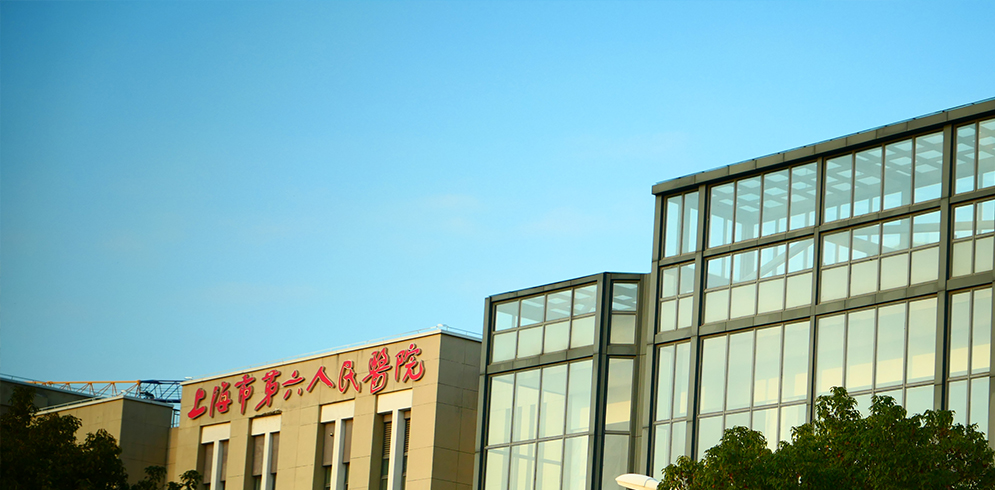.jpg)
Introduction
Established in the 1950s, the Department of Traditional Chinese Medicine of Shanghai Sixth People's Hospital boasts two esteemed TCM doctors in Shanghai, namely Professor Jin Mingyuan and Professor Yang Bingchu. Since its inception, the department has steadily grown, with the ward established in 1992 and currently housing 30 beds across two campuses: Xuhui campus and Lingang campus. Among its 14 senior staff members, one serves as a doctoral supervisor and four as master’s supervisors. Through years of dedicated effort, the department has cultivated an interdisciplinary team comprising individuals of various ages, laying a solid foundation for the discipline's sustainable development.
Professor Yang Bingchu, former academic leader, is a distinguished figure in the field, holding the titles of Shanghai Outstanding Chinese Medicine Practitioner, chief physician, and professor. Renowned for his exceptional skills in diagnosing and treating complex diseases, he is celebrated for his remarkable treatment outcomes and enjoys widespread acclaim among patients in Shanghai.
Huo Qingping, another prominent figure within the department, is a chief physician, professor, and master's tutor with over 40 years of experience in clinical practice, teaching, and research in traditional Chinese medicine. Under her leadership, the department has garnered recognition as Shanghai Superior Clinical Specialty for TCM Encephalopathy and has been designated as the National Clinical Drug Trial Base for TCM Encephalopathy.
Heading the Department of Traditional Chinese Medicine is Wang Bing, a distinguished chief physician, MD, doctoral supervisor, and director of the Teaching and Research Office of Traditional Chinese Medicine. Wang Bing also serves as the director of the National Collaborative Base for Standardized Training for Residents and Specialists in Traditional Chinese Medicine, and holds positions as a part-time professor at Shanghai University of Traditional Chinese Medicine and as a standing member of various professional committees and societies related to traditional Chinese medicine.
The department adheres to an integrated approach to traditional Chinese and Western medicine diagnosis and treatment, specializing in the management of common clinical conditions, prevalent diseases, and complex disorders. It has developed an innovative model of integrated diagnosis and treatment that encompasses prevention, diagnosis and therapy.
Specialties
Traditional Chinese Medicine Internal Medicine
- Integrated Traditional Chinese and Western Medicine for the Prevention and Treatment of Ischemic Cerebrovascular Disease: The department conducts arteriosclerosis and cerebrovascular function testing, employs syndrome differentiation and disease differentiation methods, and achieves remarkable clinical efficacy.
- Multidisciplinary Cooperation of Integrated Traditional Chinese Medicine and Western Medicine: Through collaborative efforts with various Western medicine departments, the department has accumulated rich experience in the prevention and treatment of encephalopathy, endocrine and metabolic diseases, dizziness, diabetic nephropathy, anorectal diseases, gynecological diseases, and more.
- Combination of Traditional Chinese and Western Medicine to Prevent and Treat Metabolic Syndrome and Metabolic-related Fatty Liver Disease: Utilizing behavioral interventions, such as diet control and exercise, combined with traditional Chinese medicine treatment approaches, the department effectively manages metabolic syndrome and fatty liver disease.
- Traditional Chinese Medicine for the Prevention and Treatment of Malignant Tumors: Through the integration of traditional Chinese medicine with conventional treatments, the department focuses on enhancing the efficacy of cancer treatment, improving quality of life, and preventing recurrence and metastasis.
- Traditional Chinese Medicine for the Prevention and Treatment of Gastrointestinal Diseases: Leveraging the clinical expertise of renowned practitioners, the department effectively treats gastric precancerous lesions and other gastrointestinal conditions with notable success.
Traditional Chinese Medicine Surgery
Xuhui Campus
Traditional Chinese Medicine for Anorectal Disease: Tailored treatment methods are employed for various anorectal conditions, showcasing flexibility and diversity. Surgery is approached comprehensively, often incorporating physical therapies like ice pads, cold compresses, and microwave therapy devices. The spectrum of diseases treated includes a range of conditions, with a notable focus on complex cases like large annular mixed hemorrhoids combined with anal fistulas, which can be managed in a single operation, underscoring the ongoing advancements in this specialty.
Lingang Campus
(1)Traditional Chinese Medicine for Anorectal Disease
Integrated Internal and External Therapy with Traditional Chinese and Western Medicine: A wide array of surgical therapies is performed, complemented by physical treatments such as ice pad cold compresses, red light microwave therapy, helium-neon laser therapy, traditional Chinese medicine fumigation, Chinese medicine steam baths, and Chinese medicine retention enemas. Concurrently, combined internal and external treatments are administered for conditions like constipation, inflammatory bowel disease, anal sinusitis, anal pain syndrome, perianal skin itching, and others.
(2) Traditional Chinese Medicine for Ulcers
Integrated Traditional Chinese and Western Medicine is utilized to address various acute and chronic skin ulcers, including pressure ulcers, varicose ulcers of the lower limbs, diabetic foot ulcers, arteriosclerosis obliterans of the lower limbs, and thromboangitis.
(3) Traditional Chinese Medicine for Skin Disease
Traditional Chinese Medicine is employed for various types of common skin diseases, including internal and external treatments of skin conditions such as carbuncles, boils, erysipelas, cellulitis, mastitis, herpes zoster, acne, urticaria, eczema, psoriasis, and chloasma.
Traditional Chinese Medicine Gynecology
- Perimenopausal Syndrome: Utilizing traditional Chinese medicine principles, the department employs a holistic approach to treat perimenopausal syndrome.
- Common Gynecological Diseases: Employing a combination of traditional Chinese medicine therapies, the department effectively manages chronic pelvic inflammatory disease, vaginitis, uterine fibroids, endometriosis, and other gynecological conditions, providing significant relief to patients.




